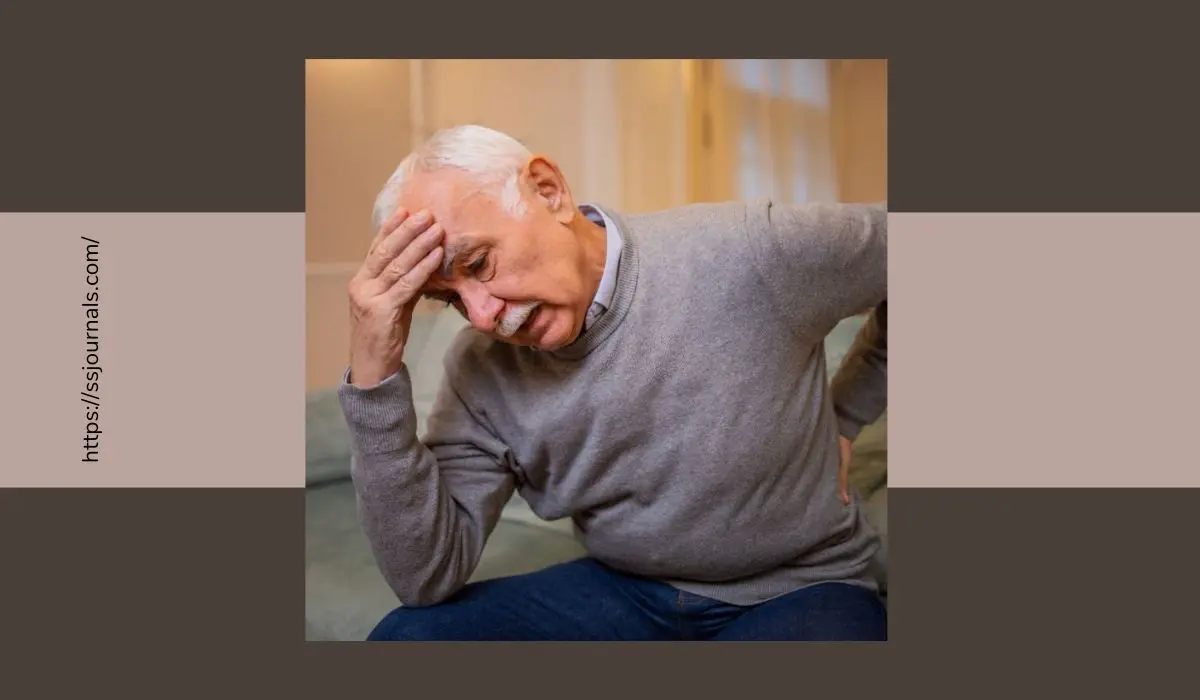As we age, we face challenges. Older adults can experience geriatric problems. These issues vary from physical ailments to cognitive decline.
We need to handle these concerns with compassion and find solutions to ease seniors’ suffering.
When it comes to geriatric problems, one has to pay attention to the physical aspects.
Aging causes conditions like arthritis, osteoporosis, and cardiovascular diseases. This can limit independence and hamper tasks, resulting in frustration and a decrease in well-being.
Additionally, older adults have cognitive decline. Memory loss, difficulty concentrating, and confusion are frequent. Depression and anxiety often occur too, making life hard for seniors.
We must act now to protect our elderly population. Medical initiatives to detect preventive measures and treatments should be a priority.
Education for healthcare professionals specializing in geriatrics is necessary. Families and caregivers must understand the importance of early intervention.
People age differently. Some may not have these issues. For those who do, we must create support systems.
We should strive for an inclusive environment where aging means honor. No one should face these struggles alone.
We can make a difference through medical advancements, community support programs, and compassionate care for older adults.
We can ensure a better future for our aging population. Let us join forces and make a positive impact on the lives of older adults. Their well-being is worth fighting for.
Understanding Geriatric Problems
To understand geriatric problems, delve into common age-related health issues and mental health challenges faced by older adults. Explore the potential solutions for these sub-sections.

💦 Common Age-Related Health Issues
Age-related health issues are a typical part of aging. As we age, our body changes which can cause certain conditions. One such issue is arthritis, which brings joint pain and stiffness.
This affects their regular activities and activity levels. Cardiovascular disease, like heart attacks and strokes, is also common due to factors such as high blood pressure and cholesterol.
Cognitive decline and memory loss are also serious concerns.
Alzheimer’s can have a major effect on the individual and their family. Caregivers must be aware of these problems and offer help.
Osteoporosis weakens bones and raises the risk of fractures. Vision and hearing loss also affect mobility, independence, and overall well-being.
To avoid these issues, seniors should focus on preventive measures.
This includes a nutritious diet, exercise, enough sleep, stress management, and regular doctor check-ups. It is also good to stimulate the mind with activities like puzzles and reading.
💦 Mental Health Challenges in Older Adults
Mental health issues in seniors need special care. As they get on in years, they may experience a variety of psychological concerns that can affect their health.
Such challenges can include depression, anxiety, and cognitive decline. It’s essential to provide help and resources for addressing these problems effectively.
Age-related mental health issues may stem from a mix of factors. These could be biological shifts, social isolation, or the passing of loved ones.
Sadness is a common issue among the elderly. It might be caused by brain chemistry changes or general life situations.
Anxiety is another challenge, which may show up as fearfulness or excessive worry. Cognitive decline, like memory loss or dementia, is also a serious difficulty for older folk.
Certain details about mental health issues in seniors are key to consider. For example, social isolation can worsen the problem.
As people age, they might be lonely due to retirement or losing friends and family. This seclusion can lead to melancholy and fear.
To better manage mental health challenges in older adults, we should push for social connections and create supportive environments.
Encourage seniors to be involved in community activities or join senior centers. This can help reduce lonesomeness and give them friendship.
Give access to mental health resources such as counseling and therapy.
Managing Geriatric Problems
To effectively manage geriatric problems, such as those faced by older adults, turn to solutions like regular health check-ups, rehabilitation and physiotherapy, and mental health support and counseling.
These sub-sections offer ways to address the various aspects of geriatric care and focus on maintaining physical, emotional, and mental well-being.
💦 Importance Of Regular Health Check-Ups
Regular health check-ups are essential for managing geriatric issues. These enable healthcare professionals to spot diseases or abnormalities early, leading to timely intervention and better treatment results.
Furthermore, these check-ups give healthcare providers a chance to assess older adults’ overall health status.
Through vital sign measurements, blood tests, and other diagnostics, doctors can evaluate physical well-being and spot any underlying health issues that may need further investigation or treatment.
In addition, these check-ups let healthcare providers monitor the effectiveness of ongoing treatments and adjust them if needed.
By regularly reviewing medications and conducting follow-up assessments, physicians can make sure their patients get the right care and make changes for better results.
Moreover, regular health check-ups are an important preventive measure against potential geriatric problems.
By monitoring risk factors like blood pressure, cholesterol, and body mass index, doctors can intervene early to prevent chronic conditions like cardiovascular disease or diabetes.
💦 Rehabilitation And Physiotherapy
Geriatric management often involves Rehabilitation and Physiotherapy. This focuses on helping seniors become stronger, more mobile, and independent.
- Rehabilitation and Physiotherapy can help seniors balance better, reducing fall risks by targeting areas like muscle weakness or joint stiffness.
- It can also reduce pain and discomfort through techniques such as manual therapy or therapeutic exercises.
- Post-surgical recovery is another area where physiotherapy plays a crucial role.
- The treatment plans created by physiotherapists are tailored to the individual’s needs.
- This approach can also promote a sense of empowerment in older adults, allowing them to take charge of their health outcomes.
In addition, physical therapy includes educational components on body mechanics and preventive measures.
💦 Mental Health Support And Counseling
Mental health support and counseling are key for handling geriatric issues. Professionals offer guidance and aid to elderly adults, to make sure their mental health is sound.
Sessions provide a safe space for seniors to voice their thoughts, worries, and struggles without judgment.
Active listening and empathy help them cope with feelings of loneliness, anxiety, and depression that usually come with aging. Counselors also encourage self-care and coping strategies, like mindfulness exercises or journaling.
In addition to emotional support, counseling also helps manage geriatric issues.
It understands the unique problems elderly people face, like grief from the loss of loved ones or transitioning to retirement.
It also assists with chronic illnesses by addressing the emotional strain it has on individuals and helping them build resilience.
Mental health support is an important preventive measure to preserve cognitive abilities and dementia in old age.
Studies suggest regular counseling sessions can improve cognitive functioning and delay age-related cognitive impairments.
These sessions use puzzles and memory exercises to stimulate memory.
It is essential to seek professional help for geriatric issues. Encourage elderly persons in your life to prioritize mental health by reaching out for help tailored to their needs.
Time passes quickly; take action now and seek professional assistance.
Mental health support and counseling can help seniors live a good life during their golden years, as they cope with the challenges of aging. Start promoting mental wellness today!
Related:- What Are The Brain Blood Clot Symptoms, Causes, And Treatments
Promoting Healthy Aging
To promote healthy aging, equip yourself with the necessary tools.
Utilize exercise and physical activity, nutrition and diet tips for older adults, and social engagement and community involvement as solutions.
Embrace these sub-sections and empower yourself to overcome geriatric problems faced by older adults. Strengthen your well-being and enhance your quality of life.
💦 Exercise And Physical Activity
It’s vital to stay active for healthy aging. Exercise and physical activity are key for this.
Regular exercise helps keep muscles strong, and flexible, and your heart healthy. It also improves coordination and balance, which can reduce the risk of falls in older adults.
Aerobic exercises like walking, cycling, or swimming, can help your heart and endurance.
Strength training, like lifting weights or using resistance bands, builds muscle and increases bone density.
Flexibility exercises, such as stretching or yoga, promote joint mobility and reduce stiffness.
Balance exercises, like tai chi, can increase stability and reduce the risk of falls. Plus, exercise can have a positive effect on cognitive functioning. Studies show it can improve memory, attention, and problem-solving skills.
Physical activity can also help maintain a healthy weight and manage chronic conditions like diabetes, heart disease, and arthritis.
Every bit of movement counts. To stay healthy, the WHO recommends adults aged 65 and up get 150 minutes of moderate-intensity aerobic activity each week.
This can be broken into shorter sessions, to make it more manageable for varying fitness levels.
💦 Nutrition And Diet Tips For Older Adults
Maintaining well-being is vital for older adults. To achieve this, paying attention to nutrition and diet is key. Here are some essential tips:
- Eat a balanced diet of nutrient-packed foods like fruits, veggies, whole grains, lean proteins, and low-fat dairy.
- Drink lots of H2O – at least 8 glasses a day.
- Be aware of portion sizes – metabolism slows with age.
- Watch out for excess sodium and sugar – it can increase the risk of health problems.
To further aid healthy aging, seniors should seek counsel from healthcare professionals or registered dietitians. This will ensure personalized advice based on their nutritional needs.
Research has shown that nutrition is a major factor in healthy aging. In the past, senior nutrition was not given much consideration.
Now, proper nutrition helps prevent chronic diseases and maintain physical function.
💦 Social Engagement And Community Involvement
Seniors can fight loneliness and isolation by connecting with others. Joining clubs, volunteering, or attending events offer chances to meet people and form relationships.
Creating a strong social network of family, friends, and neighbors is essential. Being socially involved keeps the mind active and sharp.
Attending discussions, workshops, or cultural events can help prevent cognitive decline. It also provides a sense of purpose and accomplishment.
For seniors, a great way to boost self-esteem is to get involved in community activities.
We suggest exploring organizations or groups based on interests and hobbies for more fulfilling interactions.
Read More:- Fetal Alcohol Syndrome – Causes & Prevention Techniques
Conclusion
Elderly individuals confront various geriatric issues that need attention and care. Regarding this, an essential factor to bear in mind is their physical health.
Conditions like arthritis, cardiovascular diseases, and osteoporosis, caused by aging, can influence their everyday life.
Mental health is another significant factor in the lives of elderly people. They are prone to depression, anxiety, and cognitive decline.
To manage these difficulties, we must provide them with emotional support, via counseling services or group therapy sessions.
In addition, designing an age-friendly environment is essential. Adjusting their living spaces to increase access and safety can significantly enhance their quality of life.

